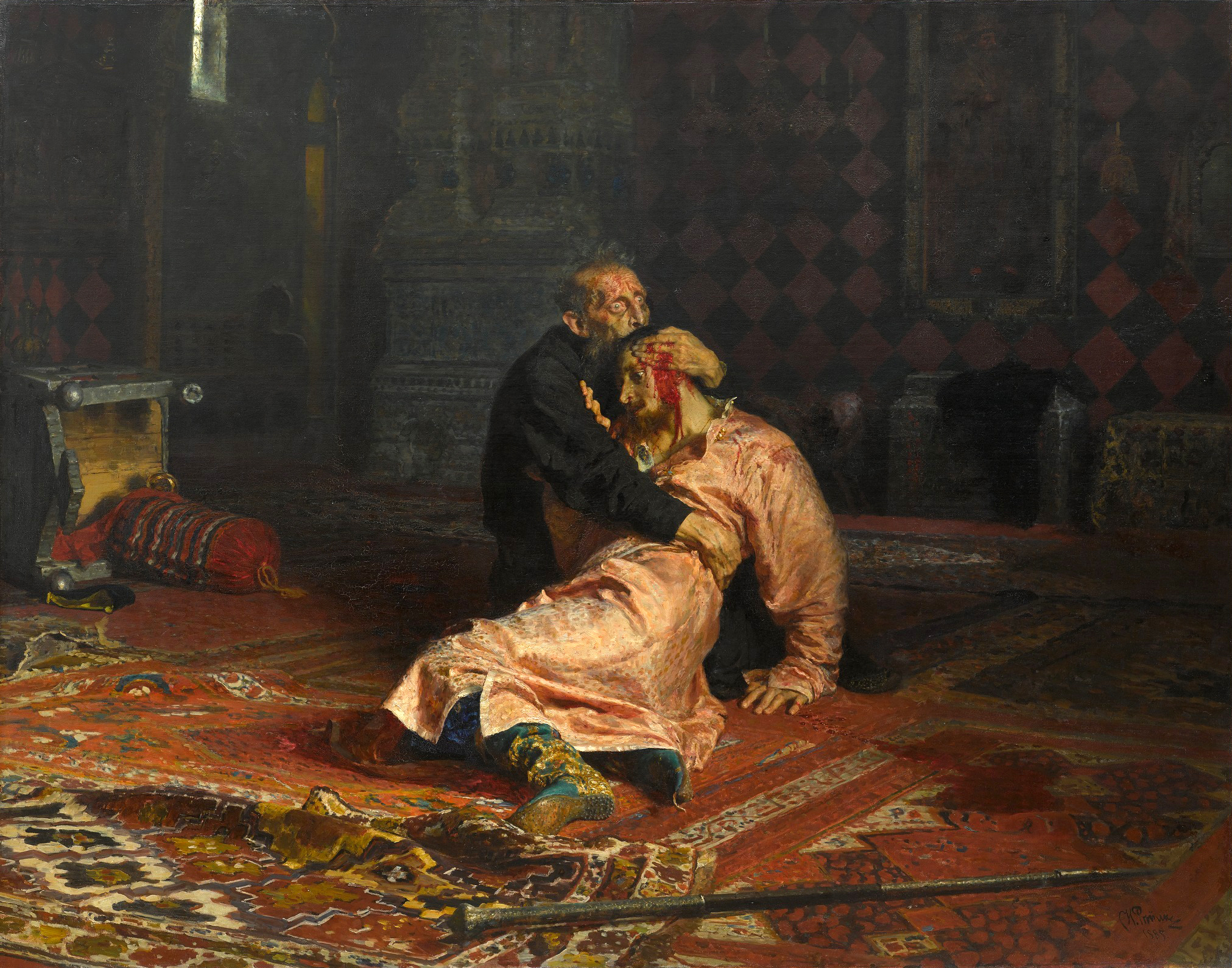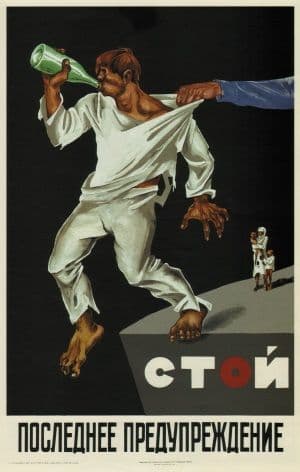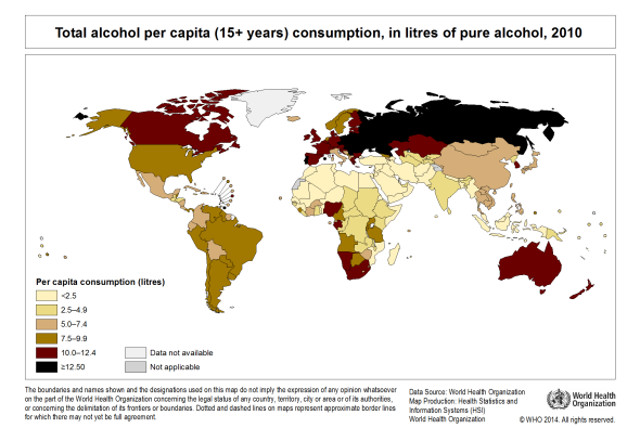I am sure I am not the only foreigner to have ended up in an emergency room after accidentally imbibing illicitly produced and poisonous cognac which – along with “third shift” vodka – was ubiquitous in the Russia of the 1990s. The doctor on call expressed no surprise. “You should drink less” was his only advice, citing a famous and beloved Russian comedy about excessive drinking, Eldar Ryazanov’s 1975 film The Irony of Fate.
Mark Schrad’s book puts that all-too-common Russian experience in a long historical context. And indeed, reading Vodka Politics, you begin to wonder how the Russians have ever accomplished anything at all, given the drunken stupor in which so many of them have spent so much time.

From the earliest years of the Russian state, alcohol has been the friend of the government and the foe of the citizen. In his comprehensive history of the role of alcohol in Russian economics, culture, and politics, Schrad relies in equal measure on anecdotes and statistics to demonstrate that the extent of vodka’s influence across the history of the empire has been utterly tragic.
Drunken feasts accompanied the bloodthirsty torture techniques of Ivan the Terrible in the 16th century, but the “modernizer” Peter the Great was no better as his reign careened to an end in the early 18th century. Both reveled in blasphemy and debauchery; both drank to excess and forced their boyars to do the same; both killed their own sons and heirs. Both also died in their early 50s due in part to the toll alcohol had taken on their physical bodies. Today, life expectency for Russian males is 58.
And it is that final detail, the effect of alcohol use on demography, that emerges as a constant throughout Russian history. Indeed, Schrad has tackled this subject – a cultural cliché, as he admits, but one that deserves a fulsome treatment – in honor of his former professor at Georgetown University, Murray Feshbach, whose dire predictions about the crisis in Russian health and wellness spheres continue to come true.
Schrad points to taxation policies as the prime reason Russians have become so dependent upon alcohol. Whenever the state worries about the effects of alcohol on the health and well-being of the population, it becomes clear that the federal (or local, or imperial) budget is as addicted to the tax benefits of producing and selling alcohol as the populace is to drinking it.
Indeed, the two major state efforts across history to force temperance both resulted in the destruction of the government itself: Nicholas II, the last Romanov tsar, and Mikhail Gorbachev, the last Soviet General Secretary, both instituted dry laws and fought the Russian thirst for alcohol – and both were ousted as their empires collapsed.

Anyone who has studied Russian culture indepth, or spent any time in Russia or its predecessor state, the Soviet Union, instinctively knows much of what Schrad details. I recall the first teetotalling graduate student of Russian I ever met and my immediate reaction to her: how can she possibly understand Russia if she doesn’t drink? For many Russianists, vodka is a part of the literature we read and the life we know. It has lubricated our relationships and facilitated our knowledge of the Russian language. Unfortunately, that is even more true for the Russians we study, for our compatriots at research institutions, for the inhabitants of almost abandoned villages across the Russian countryside. During Putin’s first two terms, Schrad tells us, an average of 36,000 Russian citizens a year died from alcohol poisoning (370). Since the collapse of communism in 1991, over 400,000 Russians have died for alcohol-related reasons every year (14). This is not a problem that is going away.
Recent compilations of statistics from Russian state news are now circulating on the internet to remind Ukrainians of why they should think twice before becoming part of Russia (here). Birth and abortion rates, infant mortality, birth defects, and illnesses; crime rates, including murder; accidental death and suicide rates; divorce rates and life expectancy – all place Russia among the worst nations in the world. And all of these indices are related to alcohol consumption. Not surprising, since as Schrad reminds us, the average Russian male drinks 180 bottles of vodka a year (329). And the women aren’t far behind.
Which is why this book is good reading for specialists and non-specialists alike, as it speaks to current geo-political urgencies. Schrad quotes liberally throughout his book: from Russian politicians and state figures, from official statistics and the approximations of Western specialists who have constructed elaborate models to “guess” the true extent of the tragedy, from American observers including Will Rogers, Bill Clinton, and Stephen Colbert. Schrad brings both reckless and more sober voices of the past alive, deftly weaving anecdotes about Stalin into his discussions of Ivan IV, of Khrushchev, even of Putin.
Like many American political scientists, Schrad continues to believe that Russia can escape its history. His last chapter focuses on the “what if” scenario, comparing Russia to Sweden, which kicked its alcohol habit a century and a half ago and now has some of the best health and wellness indicators in the developed world. “The Gothenburg option,” Schrad writes, “may promote genuine democratization in Russia” (390). What he fails to acknowledge is that democracy has never been as appealing for Russians as it has been for foreign experts about Russia.

Dostoevsky crafted his 1866 novel Crime and Punishment from the manuscripts of an earlier novel-in-progress, which he was tentatively calling The Drunkards. In the final version, one of his characters famously asks the protagonist “Do you understand what it means when you have absolutely no where to turn? For every man must have somewhere to turn.” Not long afterward, that character, drunk, falls under a horse-drawn carriage and dies. Yet another alcohol-related accident – literature abounds with them. But so does Russian life.
In July 1999, I saw an electronic message board in the St. Petersburg subway which scrolled: “171 years ago this week the Russian writer Nikolai Chernyshevsky was born. He first asked ‘What is to be done?’ in 1863, and we are still asking that same question today.” Unfortunately for the Russians, the answer continues to elude the populace, many of whom are still seeking it at the bottom of a vodka bottle. Mark Schrad ties Russia’s political history to that eternal search.
